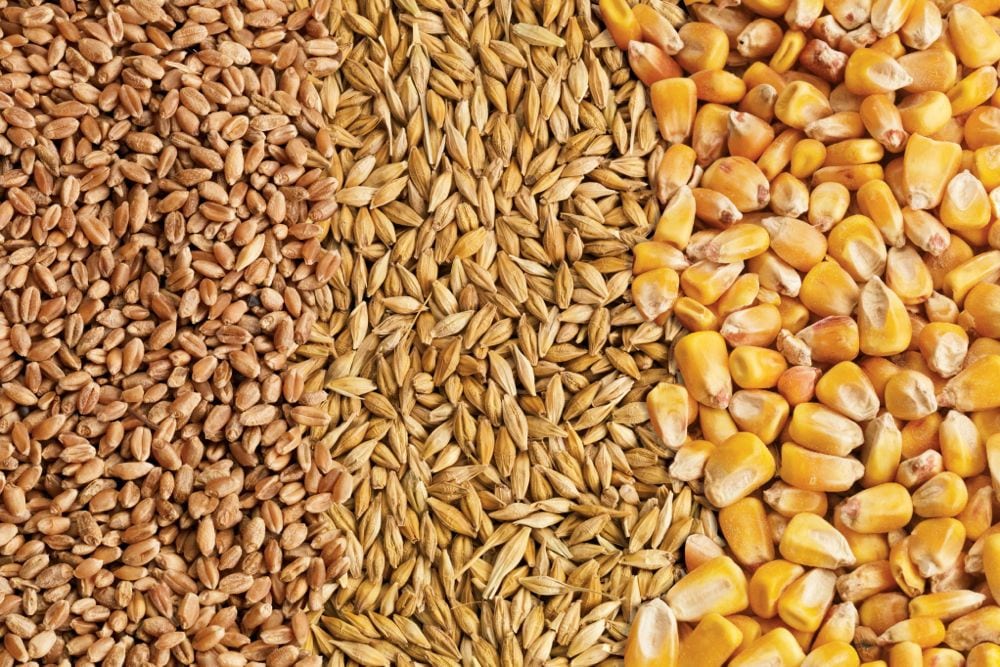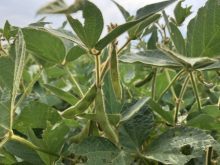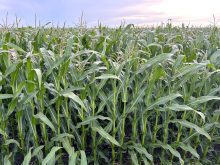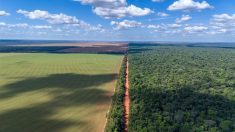Ontario’s planned regulation to limit the use of neonicotinoid seed treatments might as well be a ban from where the organization sits representing the province’s corn and soy producers.
After reviewing the draft regulation, which provincial officials posted March 23 for public comment until May 7, Grain Farmers of Ontario said Thursday it “strongly opposes any action to move (the proposed regulation) forward.
“The proposed regulations, if approved as written, would take effect July 1.
GFO chairman Mark Brock, a grain grower at Hensall, Ont., said Thursday the group has “brought forward numerous questions to the Ontario government regarding various aspects of the plan.”
Read Also

Feed Grains Weekly: More consideration being given to U.S. corn
There’s beginning to be a shift within the Canadian Prairie feed market towards importing United States corn, said Darcy Haley, vice-president of Ag Value Brokers in Lethbridge.
The regulation would see neonic-treated corn and soybean seeds moved into Class 12, a new pesticide class specifically for seeds treated with the so-called neonics — imidacloprid, thiamethoxam or clothianidin.
It also requires training on integrated pest management (IPM) methods for any farmer or anyone else supervising planting of neonic-treated corn or soybeans.
For the 2016 season, the province proposes to allow purchase and use of neonic-treated seed on up to 50 per cent of acres planted to corn or soybeans.
A “pest assessment” — identifying pest problems above pre-determined thresholds — would need to be done for any farm planting more than 50 per cent of its acres to neonic-treated seed. Farmers would be able to perform a pest assessment in 2015 ahead of the 2016 season.
Past 2016, any farmer wanting to order neonic-treated seeds would need IPM training and a pest assessment by an independent professional pest advisor proving an infestation.
“Insurmountable barriers”
As proposed, the regulations’ “lack of clarity, inability to address very real on-farm challenges with respect to implementation of the regulations, and the timelines imposed on the industry as a whole create an unmanageable, widespread burden to agriculture,” Brock said Thursday.
Among those, GFO cited the regulations’ proposed pest assessment methods; the definition of a “valid” pest; the industry’s “capacity to manage” the requirements; and other issues such as liability and insurance.
GFO, Brock said, doesn’t see any way the farmer group can “collaborate” on further developing the rules, “because the number of fundamental, unworkable areas is far too extensive.
“The regulations, as drafted, create insurmountable barriers to access neonicotinoid seed treatment — essentially, the government has developed a ban on the product.”
GFO also warned the province it can expect crop science and biotech companies to take their investments elsewhere in Canada.
“As a regulation made outside of scientific evidence and based in the precautionary principle, (the proposed neonic rule) signals that Ontario operates unique to the rest of North America and is a high-risk market with an unpredictable regulatory system.”
GFO members, Brock said, “care very much about the health of pollinators and have worked with stakeholders, including beekeepers, to find a collaborative and sustainable approach forward for agriculture and bees.”
That approach, he said, was mapped out in the Ontario Pollinator Health Blueprint document, which GFO submitted to the province last month, and “which the government dismissed entirely.” — AGCanada.com Network















